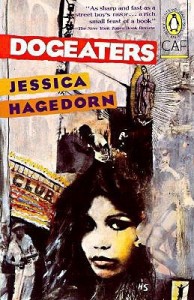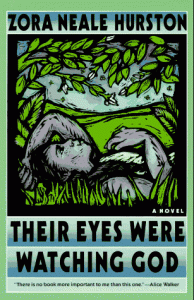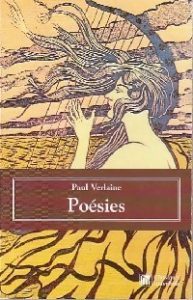Cinematic Fiction
DeLillo crafted one scene in the book so masterfully it felt cinematic. When Brita is photographing Bill in his writing room, DeLillo writes: “Bill looked for matches now, clearing papers off the desktop.” Through this action, I could see exactly the jumble of his room and the mess of his thoughts. Then DeLillo goes on: “[h]e struck the match and then forgot it.” It was beautiful. I was enthralled. I knew Bill completely through that one gesture. I could see him distractedly cogitating on his relationship with the world outside his house. I felt like I was watching the scene on screen and I didn’t mind that it felt cinematic rather than real. But then DeLillo takes it too far as Brita is taking the last pictures of Bill: “[Brita] moved in closer and refocused, she shot and shot, and he stood their looking into the lens, soft eyes shining.” DeLillo has carefully placed the reader in the position of seeing Bill through the lens of that camera to further the point he is trying to make about images. But at the same time, he is forcing the reader to step outside of the narrative and help construct the fiction. He took me from my seat in the theater and put me behind the camera. I felt forced to participate in the contrivance of the image.
A Series of Unlikely Events
DeLillo also kept me on the outside of the book looking in by throwing together too many unlikely events. If it were just the story of a man (Scott) who is led by fate (we are to believe) to his reclusive idol’s (Bill’s) doorstep, a photographer (Brita) who has sought out this idol, and the idol and his relationship with his editor (Charles) and family, I can weave together the threads and follow the story without complaint. But DeLillo ads in a myriad of disparate and improbable characters: a girl (Karen, a girl so spaced out she knows Warhol’s hair color but can’t remember his name) who was married at Yankee Stadium by the Reverend Moon and who somehow runs into Scott; Arafat; and a poet who was kidnapped at exactly the right moment to become a vehicle for Bill’s come-back. The story was too big for me, and even with a strong belief in fate, I had difficulty making the leaps DeLillo wanted me to make to believe that these characters could ever come together at precisely the right times without divine intervention. It felt like he was reminding me this was a fiction.
Moments of Truth
In sharp contrast to the contrivances DeLillo presented, there were two moments in the book that felt heartbreakingly true. One was when Bill is speaking about his childhood: “I used to announce ballgames to myself….I was the players, the announcers, the crowd, the listening audience and the radio. There hasn’t been a moment since those days when I’ve felt nearly so good.” Having read enough DeLillo to recognize his fascination with baseball, I felt like this was him ascribing his own childhood to Bill. It was so humbly written and so shockingly revealing of an author’s desire to be an entire world, this moment stood out glaringly from the rest of the text. I felt for the first time that I was reading something true. The other sentence where I felt like I could touch the author was: “[a] woman knows how to want something.” It was so cryptic and yet so universally applicable. It seemed like one of those moments where an author throws in an observation he has made that speaks more to a greater truth than to the characters. Again, I felt I was taken out of the narrative, but this time by truths rather than fictions.
I enjoyed the book. I was caught up in the breadth of the story and the seamless way DeLillo panned back and forth between the thoughts of various characters. The book felt important. He was talking about big ideas and trying to make a point beyond the flow of the story. I liked the thrust of all of that. But in trying to make his point, DeLillo forced the situation (I have to believe consciously) and as a result, the story rang tinny. I think he was making a point about the fallacy of images, but I would have preferred to have the story. DeLillo reminded me that the reader can innately tell the difference between fact and fiction. And if I lie to them, whatever story I am trying to tell or whatever meaning I am trying to get across becomes tainted. I don’t mean that I will write nonfiction–I mean instead that I have to carefully consider whether the characters’ actions and my situations ring true. My novel must be a carefully crafted world, but I have to avoid the feeling of contrivance.
If this review made you want to read the book, pick up a copy of Mao II from Bookshop.org. Your purchase keeps indie booksellers in business and I receive a commission.
 I’m thinking a lot about the feel of foreign words on the tongue and in print lately, so I want to talk about Jessica Hagedorn’s Dogeaters. She uses Tagalog and Spanish words throughout this novel set in the Phillipines. Most often these phrases are used in dialogue and consist of exclamations, family designations, or food. Hagedorn sets aside the words for the reader by using italics, but it is clear that the intermingling of these words would occur naturally in the characters’ speech. These words lend the story authenticity, but they can also interfere with the reader’s understanding of the story.
I’m thinking a lot about the feel of foreign words on the tongue and in print lately, so I want to talk about Jessica Hagedorn’s Dogeaters. She uses Tagalog and Spanish words throughout this novel set in the Phillipines. Most often these phrases are used in dialogue and consist of exclamations, family designations, or food. Hagedorn sets aside the words for the reader by using italics, but it is clear that the intermingling of these words would occur naturally in the characters’ speech. These words lend the story authenticity, but they can also interfere with the reader’s understanding of the story.
 Though neither my French nor my understanding of poetry are good enough to honestly rate
Though neither my French nor my understanding of poetry are good enough to honestly rate